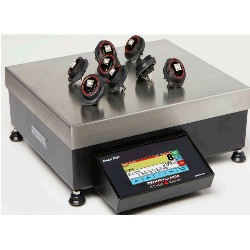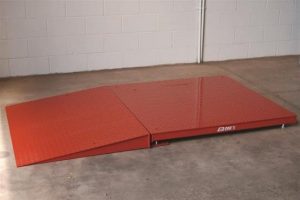The impact of weight scales for organics recycling and compost manufacturing is critical to the success of any sustainability initiative. Users searching for the right scales are typically looking to refine accuracy, manage waste volumes, and ensure the quality of the compost produced.
This article delves into the key roles these weighing scales play in the industry, from smaller kitchen compost setups to large-scale operations, shedding light on their essential contribution to an accurate eco-friendly composting process.
Important Points
-
Organics recycling includes home, community, and industrial composting, each serving different levels of organic waste management, with industrial composting playing a crucial role in urban waste management strategies.
-
Lots of industries use scales throughout production. In organics recycling and compost manufacturing, weight plays an important role from waste inventory tracking and maintenance, to waste disposal and sustainable initiatives. Weighing and process-control equipment help waste-industry businesses improve overall efficiency.
-
Composting transforms organic waste into a resource that improves soil fertility and supports sustainable agriculture, while innovations in composting equipment and data-driven operations enhance the efficiency and quality of the compost production process.
Understanding the Spectrum of Organics Recycling
There are various methods of managing organic waste, each with its own advantages and challenges. Organics recycling includes three main techniques: home composting for individual use, industrial composting on a larger scale, and community composting as a collective effort to make an impact at the local level.
These approaches play an essential role in promoting eco-friendly practices by transforming organic waste into valuable material like compost. Some examples of what can be turned into nutrient-rich soil through this process include food scraps, garden waste, food soiled paper and grass clippings.
By choosing to engage in any form of organic recycling such as these mentioned above, you have the power to contribute towards an economy that values sustainability. Converting materials like kitchen leftovers or lawn trimmings into usable resources for enriching soil fertility makes your efforts impactful both locally within your community and globally overall.
Home Composting: A Personal Approach
Home composting is a straightforward and effective method for managing organic waste at home. It involves an aerobic process that naturally breaks down food scraps and garden waste into nutrient-rich soil amendments.
The success of home composting relies on maintaining the right balance of four elements: carbon-rich “browns,” nitrogen-rich “greens,” water, and air. These components create ideal conditions for microorganisms to facilitate the composting process. One example of this technique is worm farming, which uses worms to break down food scraps and food waste resulting in high-quality soil amendment.
Aside from reducing household waste, home composting also has positive effects on mitigating climate change by improving soil health. By diverting organic materials away from landfills where they release methane gas as they decompose without oxygen present.
To be beneficial for our environment, such practices provide us with another way we can turn what would otherwise become “waste” or leftovers back into productive material. Hence showing how sustainable it could be if everyone embraced simple acts like these. Continue reading


